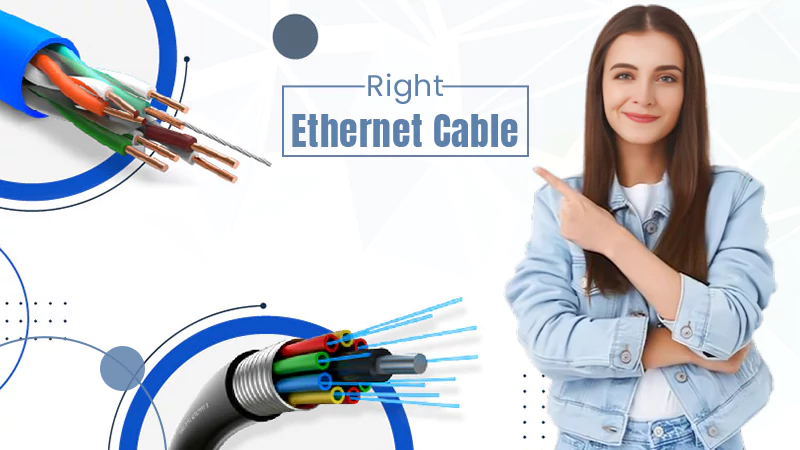
The power of ethernet cable and its flawless connectivity has existed for ages. It has become an integral part of stable connections. From eSports to 4K HD Content streaming, you can find ethernet cable being used everywhere. Despite the optic cable’s brilliance and legacy of coaxial cables, ethernet cable stands strong.
Yet, there are too many versions for it, just like any other cable. Do you ever wonder what Cat5, Cat6, or the Gigabits and transfer speed mean on Ethernet Cable? Let’s help you explore these factors and find the best ethernet cable for your basic needs:
For Everyday Internet Consumption
Cat 5e ethernet cables are commonly available options at the entry-level. They provide you a speed of around 1 Gbps and work well with most routers and devices. However, most Hotspots and Wi-Fi connections can provide you with similar or better speeds.
It is good if you have cheap internet or don’t need to do much except stream content and check emails. Most office setups utilise the 5e category.
Level Up Your Internet With Cat 6
A cat 6 cable is better than Cat 5 e cable, with a little extra cost. It offers speeds up to 10 Gbps, which is ten times that of the previous category. You can use it for HD Streaming (Even 4K) and competitive gaming. Yes, most competitive gaming takes place at this level. But remember, Cat 6 isn’t suitable for long distances.
Cat 6a exists as a subcategory to Cat 6, which enables you to establish Ethernet connections at longer distances. It is better if you have a router installed somewhere else but need a connection to your PC, console, or anything else. It is cheaper than using WiFi boosters as proxies.
Leading The Industry With Cat 7
The Category 7, or Cat 7 ethernet cable, is a top-of-the-line option that is just below Cat 8. These are both used in larger enterprises or connections that is already providing connectivity to other devices. Often, you will find them in IT sectors, Server rooms, and many other areas.
If you’re a residential user, you don’t need to bother with this option. However, if you have a commercial setup, you might want to consult your tech department for these.
Understanding Ethernet Language
First, you need to understand that Gbps (Gigabits) is different from GBPS (Gigabytes). Bits are used to denote data transmission speed in connection. You will find Mbps, Gbps, and Tbps being used in Cables, Hard Drives, SSDs, and even Flash Drives. It is a clever marketing trick used to mislead you into thinking that it is the same as Megabytes, Gigabytes, or Terabytes. That’s not true.
Similarly, Cat6, Cat7, and all these won’t matter too much if you have a compatible ethernet cable. Make sure to check for the compatibility on the cable for the device you plan on using it with. Otherwise, you might run into issues.
Final Tips To Consider
Always remember that quality matters more than the quantity. If you find a cheaper deal, it can be possible that you can outdated or incompatible ethernet cable. Opt for brands that are trusted and offer warranties, guarantees. Shop only from areas where you can get returns or refund services to ensure you find the right cable.
In the long run, it is safe to go with Cat6 Ethernet Cables for now. But if you’re on a budget and want to notice if WiFi or Ethernet makes a difference, you can begin with Cat5 Ethernet Cable.
